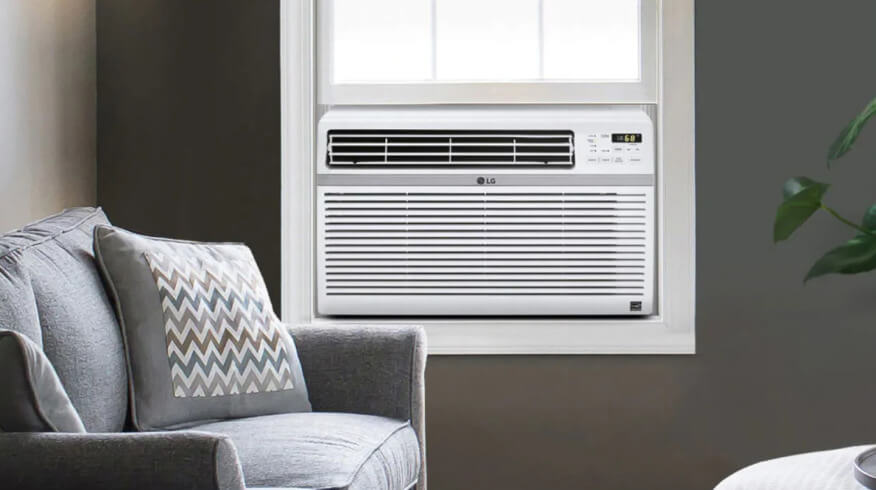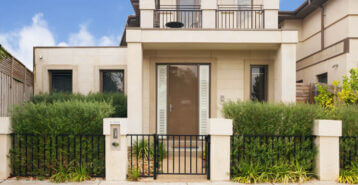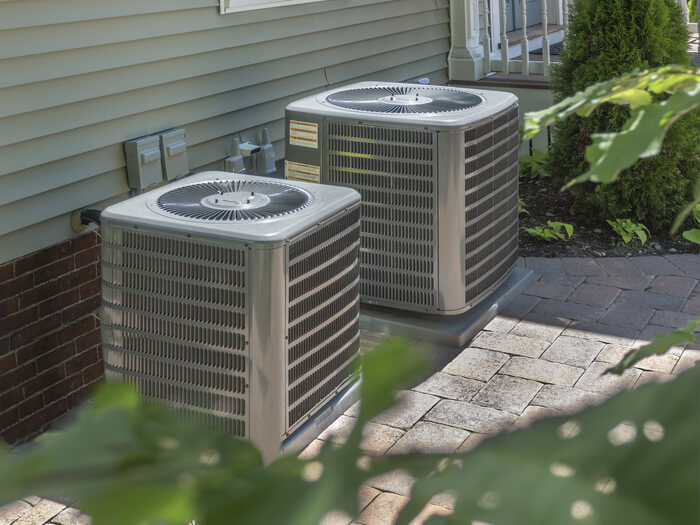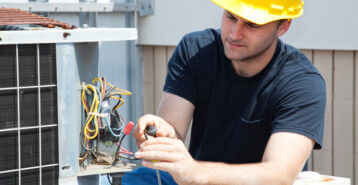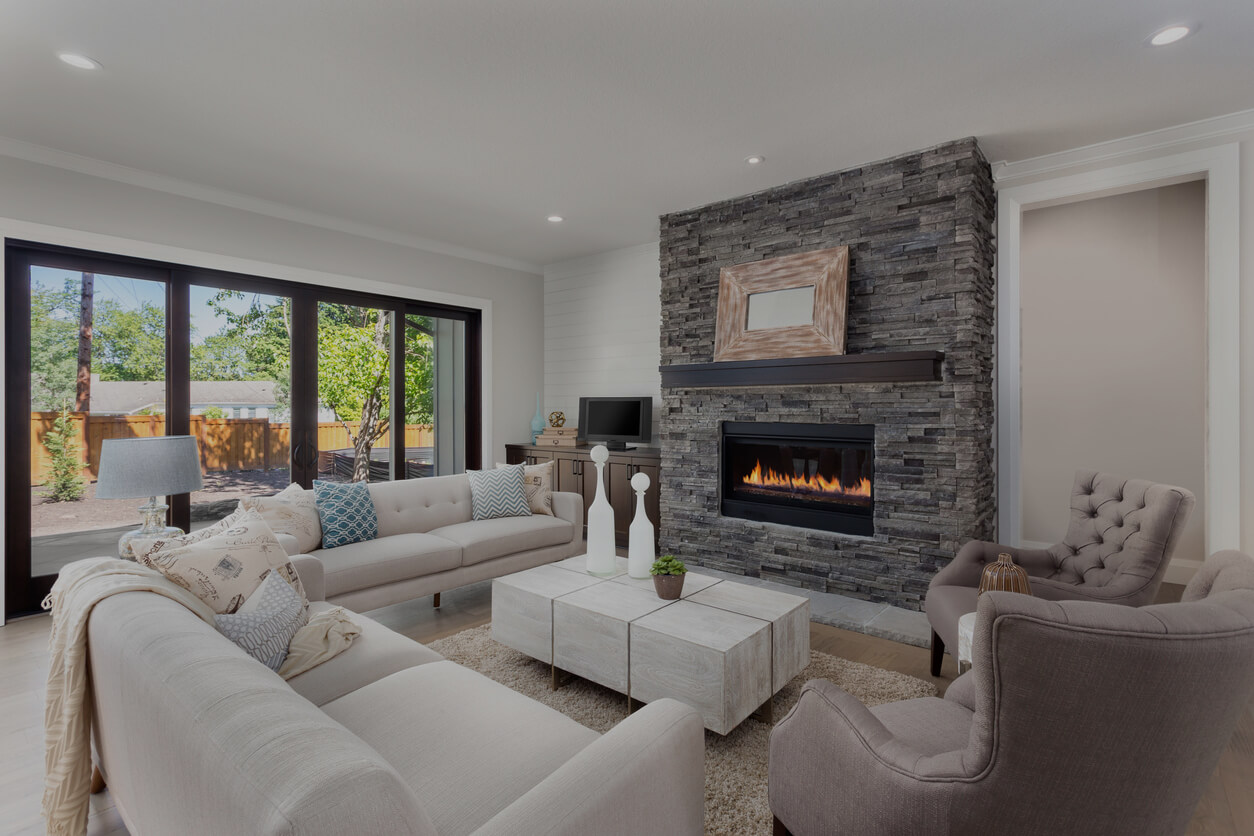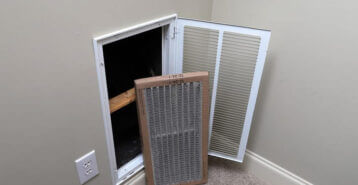How to Choose the Right Air Conditioner for Your Home
When summer temperatures soar, keeping your home cool becomes a top priority. But with so many air conditioner types available, how do you know which one is right for your home? Your decision will depend on the size of your space, your budget, and how you plan to use the unit. Understanding the different options can help you stay cool and comfortable all season long.
Types of Air Conditioners
There are several air conditioner types to choose from, each with its own strengths. Some are ideal for cooling a whole house, while others work best in smaller rooms or specific climates. Whether you’re looking for something portable, affordable, or powerful enough to handle high heat, there’s a system that fits your needs.
Below, we’ll walk you through the most common air conditioner types, including central systems, ductless options, portable units, and more.
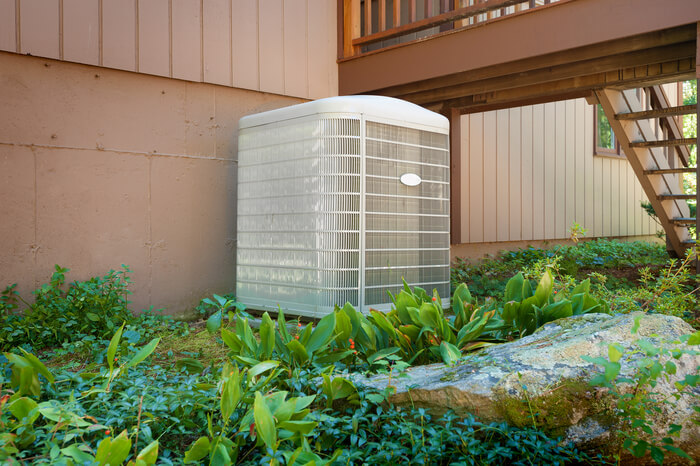
Central AC
Central air conditioners are a top choice for whole-home cooling, delivering even comfort through a network of ducts. They include an outdoor unit with the compressor and condenser, and an indoor component that connects to your furnace to circulate air. Getting the size right is key — too small, and it won’t cool efficiently; too large, and it may leave your home feeling damp. Though central AC requires professional installation and comes with a higher upfront cost, it offers long-term efficiency and reliable comfort when properly maintained.
Cost Range: $6,465 to $11,877
-
Pros
- Cools entire home
- Runs quietly
- Long-lasting with proper care
-
Cons
- Requires professional installation
- Expensive option
- Must be sized correctly
Pros:
- Cools the entire home through ductwork
- Quiet operation
- Long-lasting with proper care
Cons:
- Expensive upfront
- Requires professional installation
- Must be correctly sized for your home
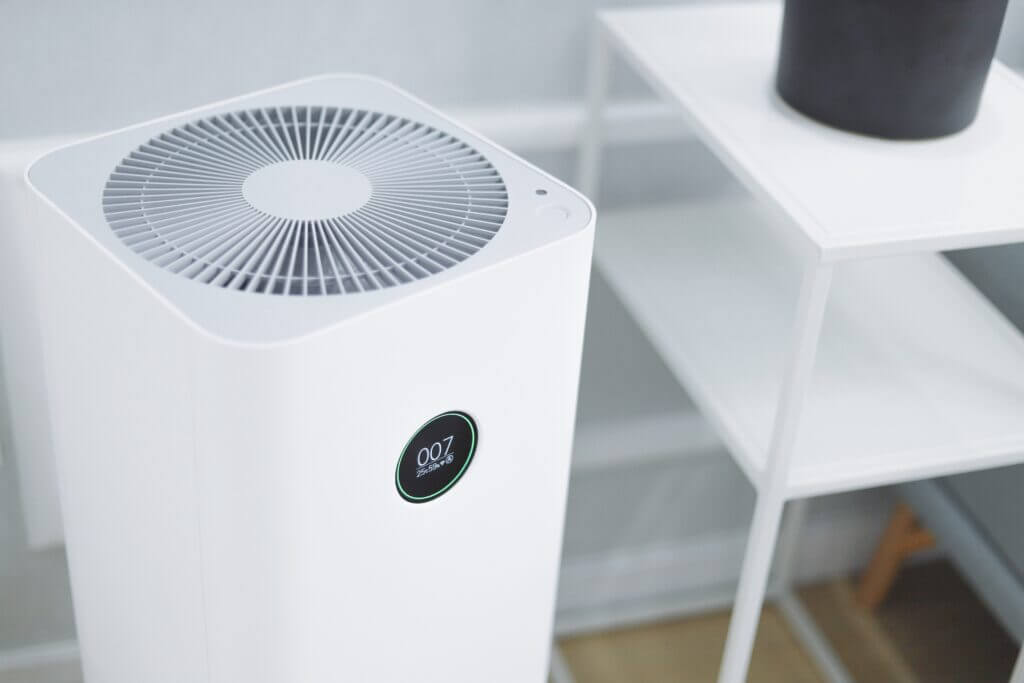
Portable Air Conditioners
Portable air conditioners offer a flexible and convenient cooling solution for individual rooms or small spaces without the need for permanent installation. These units are ideal for renters or homeowners seeking a temporary or supplemental cooling option. They are easy to set up, typically requiring only a standard electrical outlet and a window or vent for exhaust. While portable AC units are generally more affordable upfront, they may be less energy-efficient compared to other air conditioner types, especially if not properly sealed. Additionally, they can be noisier and may require regular maintenance, such as emptying water reservoirs or ensuring proper ventilation. Despite these considerations, portable air conditioners remain a popular choice for their mobility and ease of use.
Cost Range: $200 to $700
-
Pros
- Easily moveable
- Affordable option
- No permanent installation needed
-
Cons
- Can be noisy
- Can't cool large spaces
- Requires emptying reservoir
Pros:
- Moveable and simple to set up
- Affordable for small spaces
- No permanent installation needed
Cons:
- Can be noisy
- Not effective for large areas
- Requires emptying a water reservoir
Window AC Units
Window air conditioners are a cost-effective and straightforward solution for cooling individual rooms, making them ideal for apartments, small homes, or supplemental cooling needs. Installation is usually a DIY task, requiring minimal tools and effort, though assistance may be needed due to the unit’s weight. These units are designed to fit into standard windows, with the rear portion expelling heat and condensation outside, eliminating the need for a drainage system. While they offer immediate relief from heat, window ACs can be noisy and may obstruct window views or natural light. Despite these considerations, their affordability and ease of installation make them a popular choice for targeted cooling solutions.
Cost Range: $150 to more than $800
-
Pros
- Affordable
- Easy DIY Installation
- Great for single rooms
-
Cons
- Not for whole-home cooling
- Must be installed correctly to avoid drips
- Can be noisy
Pros:
- Budget-friendly
- Easy to install
- Effectively cools single rooms
Cons:
- Only suitable for small spaces
- May drip if not angled properly
- Noisier than other options
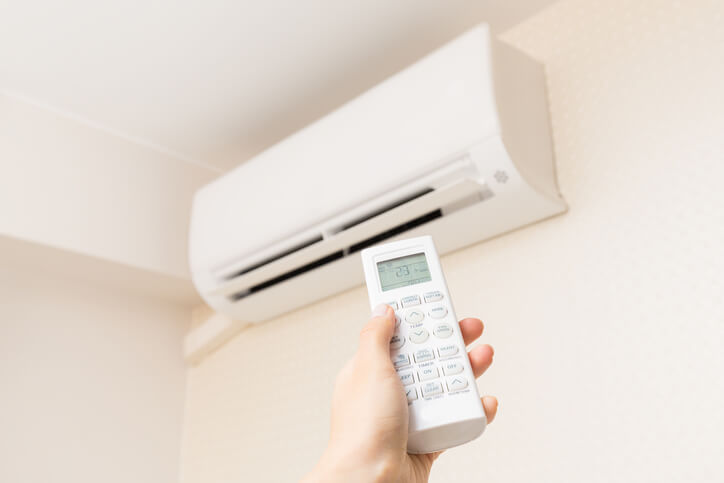
Ductless Air Conditioners (Mini and Multi-Split Systems)
Ductless systems, also called mini-split or multi-split units, are ideal for homes without existing ductwork. These systems consist of an outdoor compressor connected to one or more indoor air handlers, allowing for zoned climate control in individual rooms. Installation is less invasive than traditional systems, requiring only a small hole to connect indoor and outdoor units, making them suitable for older homes, additions, or spaces where extending ductwork is impractical. Many ductless systems also offer heating capabilities, providing year–round comfort. Their flexibility and efficiency make them a popular choice for targeted climate control without the need for extensive renovations.
Cost Range: $2,142 – $3,936
-
Pros
- Can cool and heat a space
- Easier install than central AC
- Doesn't use ducts
-
Cons
- Professional installation required
- Requires multiple units for large spaces
- Difficult to move
Pros:
- Provides both cooling and heating
- Easier installation than central AC
- No ducts required
Cons:
- Requires professional installation
- May need multiple units for large homes
- Not easily removed or relocated
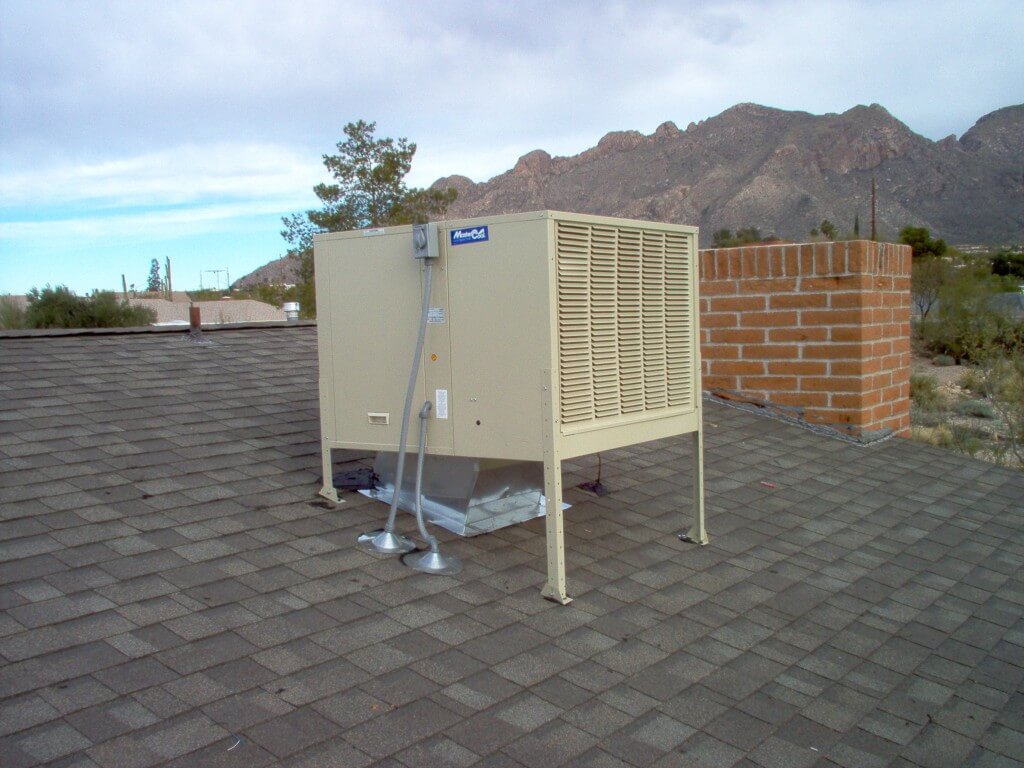
Evaporative AC
Evaporative air conditioners, or swamp coolers, are best for hot, dry climates. They work by pulling in warm outside air, passing it through water-saturated pads, and blowing the cooled air into your home. Unlike traditional AC systems, they don’t recirculate indoor air. Instead, they bring in a constant flow of fresh air, which can improve air quality. These systems use much less electricity than standard air conditioners, making them energy-efficient and affordable to run. However, they’re not ideal for humid environments, where the air can’t absorb much more moisture. Regular maintenance, like cleaning the pads and checking water levels, helps keep them running efficiently.
Cost Range: $1,562 to $3,751
-
Pros
- An energy efficient option
- Lower operating costs
- Uses fresh air
-
Cons
- Low humidity areas only
- Must keep windows open
- Will need maintenance often
Pros:
- Energy efficient
- Low operating cost
- Brings fresh air indoors
Cons:
- Only works well in low-humidity areas
- Requires open windows
- Needs frequent maintenance
Popular Air Conditioner Brands
We’ve reviewed some of the most popular air conditioner brands to help you compare costs, standout features, and top-rated models. Follow the links below for detailed reviews and to find the best fit for your home.
- Carrier: Known for energy efficiency and strong warranties
- Trane: Offers high-performance units built for durability
- Lennox: Focuses on quiet operation and smart-home features
- American Standard: Trusted for long-lasting and effective units
- Goodman: A budget-friendly option with solid performance
How to Choose the Right AC Unit
Still unsure which air conditioner type is best for you? Start with your home’s needs. If you want to cool the entire house and already have ducts, central AC might be the best choice. If your home lacks ductwork or you want to cool one room at a time, consider a ductless mini-split, window unit, or portable AC.
For those in dry climates, an evaporative cooler might be the most cost-effective and comfortable solution.
Whatever your choice, we can help you through the process, from choosing the right system to connecting you with a trusted contractor to install it.
Compare top-rated HVAC pros in your area.
Read real homeowner reviews, explore qualifications, and view promotions. Modernize makes it easy to browse professionals and find one that will be perfect for your project.
